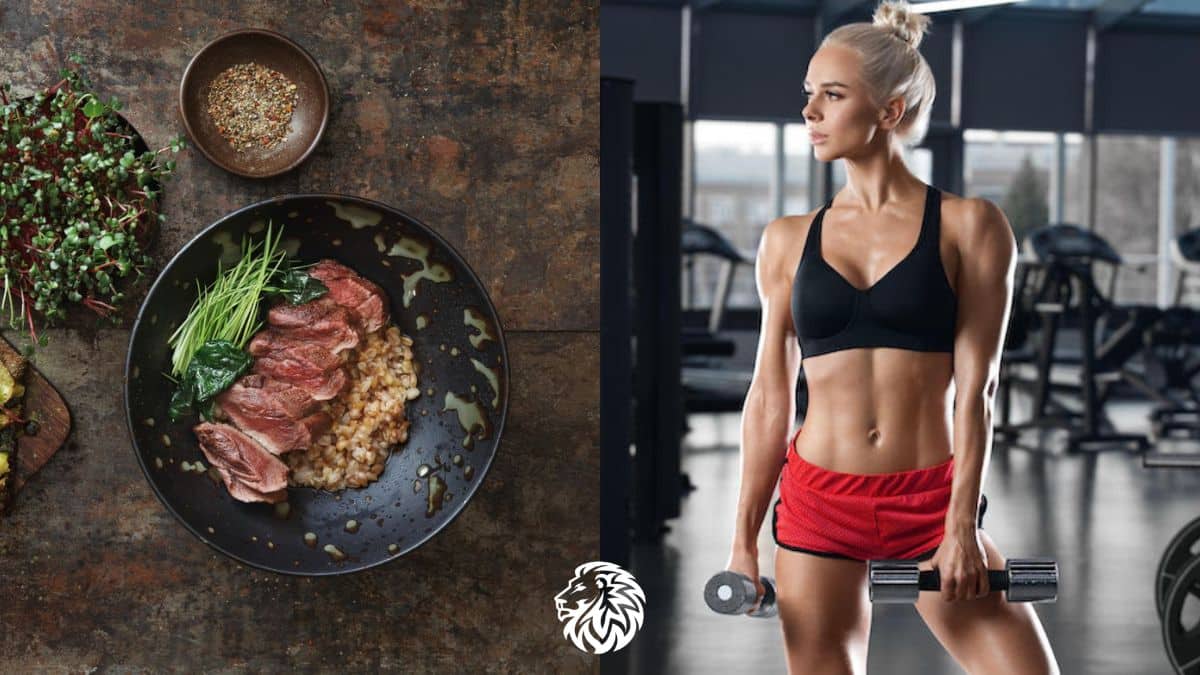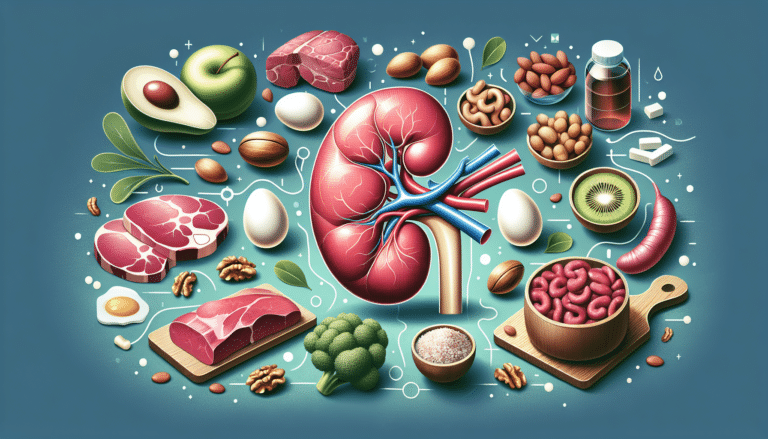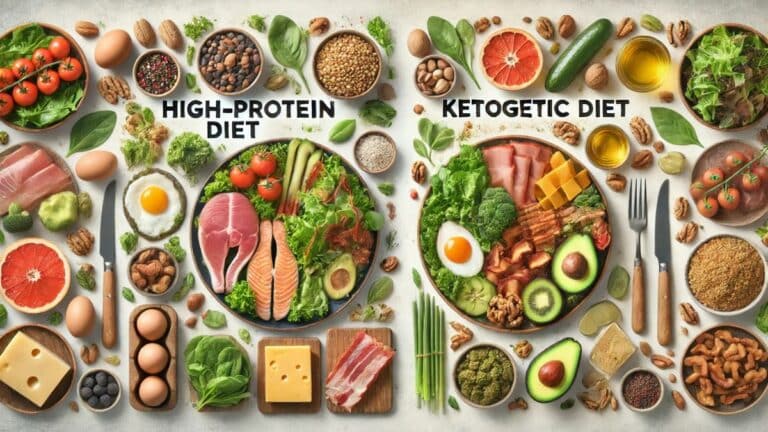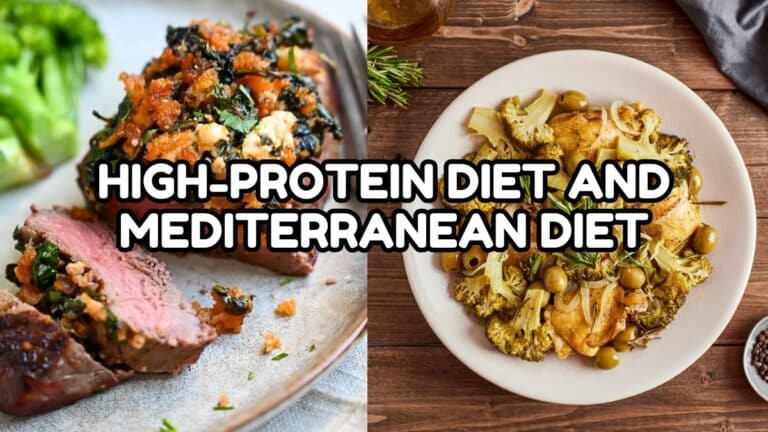Benefits of High-Protein Diet
Checking out the perks of loading up on protein might just surprise you with how it shakes things up for your health and lifespan. Here, we’re dropping some knowledge on how munching more protein can affect how long you stick around on this big blue planet and keep you kicking.
Impact on Longevity
Eating more protein could be your secret weapon to living longer, especially if you’re 65 or older. According to NIH Research Matters, folks over 65 who chow down on lots of protein reduce their odds of kicking the bucket by 28% from anything and slash their chances of dying from cancer by 60%.
But don’t forget, where you get your protein from matters big time. Piling up the bacon and steaks has been tied to a higher chance of meeting your maker, especially through cancer, while a green feast loaded with plant protein seems to give Death the slip (PMC).
Effects on Mortality
Protein-packed diets can play out differently in your lifespan story when it comes to different age brackets. If you’re between 50 and 65 and living the high-protein life, it could be a health gamble. This age group faces a 75% higher likelihood of upping their overall mortality game and has a four-fold increase in cancer-related death NIH Research Matters. But if you dial down the protein to less than 10% of your calorie intake, the risks of dodging the reaper from all causes and cancer take a nosedive (PMC).
Here’s a quick cheat sheet for protein’s power in different age squads:
| Age Group | High Protein Impact | Low Protein Impact |
|---|---|---|
| 50-65 | 75% jump in overall mortality 4x more likely to die from cancer |
Major drop in risk of all-cause and cancer-related mortality |
| 65+ | 28% chance less in dying of any cause 60% less chance of dying from cancer |
N/A |
Knowing the ins and outs of protein for your age can guide you in making smart choices about what you eat. Curious about diving into more protein goodness tailored to your needs? Check out our pieces on high-protein diet for women and high-protein diet for men. Plus, don’t miss out on our guide to best high-protein foods to support your meal choices.
Age-Specific Considerations
High-Protein Diet Effects on Different Age Groups
When it comes to protein, your age kinda changes the game. Knowing what works best for you at different stages can make your diet hit just right.
For Young Adults
So, you’re in your twenties, hitting the gym, and wanting those gains? A high-protein diet is your friend. Think about stacking your plate with stuff like chicken, fish, and good ol’ beans. It’s all about fueling those muscles and keeping your energy buzzing high.
| Age Group | Primary Benefits |
|---|---|
| 18 – 30 | Muscle gain, workout performance, energy levels |
Middle-Aged Adults
Once you’re in the 30s and 40s club, holding onto that muscle gets a bit tougher. Protein becomes your ally in the battle against the creeping belly. Maintaining muscle and managing weight is the name of the game, and hey, feeling full longer is a sweet bonus.
| Age Group | Primary Benefits |
|---|---|
| 31 – 50 | Muscle maintenance, weight management, satiety |
Older Adults
Hitting 65 and beyond, protein becomes even more important. Science backs it up: more protein might just keep you around longer and healthier. It’s not only about keeping you strong and mobile but also about lowering that nasty C-word risk.
| Age Group | Primary Benefits |
|---|---|
| 65+ | Reduced mortality, cancer prevention, muscle preservation |
Anti-Aging Benefits
Protein isn’t just about the muscles. It’s also a secret weapon against looking older.
Collagen Production
Things like fish, chicken, and legumes don’t just taste good—they boost your collagen levels. That’s the stuff that keeps your skin tight and smooth. Add some spinach to the mix for that extra glow thanks to a dose of vitamins A, C, and K.
Skin Health
Avocados anyone? Yeah, those green wonders packed with healthy fats can work wonders on your skin, keeping it hydrated and wrinkle-free. Eat them to dodge that aging bullet and keep your face looking fresh.
If you’re hunting for high-protein meal ideas or aiming for weight loss, check out our resources: high-protein diet meal ideas or a high-protein diet for weight loss. We’ve got your back.
How much protein you need can change as you age, but it never stops being your skincare and health superhero. Whether for glowing skin or a strong body, a good protein plan is like a potion for staying spry.
Health Risks and Benefits
Balancing Protein Intake
Getting the right amount of protein is like playing tug-of-war with your health. You want enough to keep your muscles strong and your tummy happy, but too much can beef up your risks instead of your biceps.
Risks of High Protein Intake
Crunching down on loads of animal protein could eventually land you in hot water. Research suggests it might spike your chances of kicking the bucket early, especially from cancer. Folks feasting mostly on animal protein seem to have a less favorable outlook than those munching on greens (source). Interestingly, hitting the brakes on protein – less than 10% of your daily calories – can be a smart move for people between 50 and 65, possibly helping dodge death and cancer threats (source).
Benefits of Adequate Protein Intake
But hey, eating enough protein is your body’s VIP pass to maintaining muscle power, especially if you’re getting up there in years and want to stay spry. Get those muscles moving and check out our piece on bulking up with a high-protein diet plan for muscle gain.
Here’s a cheat sheet for how much protein you might need:
| Age Group | Daily Protein Requirement (g per kg of body weight) |
|---|---|
| Tiny Tots (1-3 years) | 1.05 |
| Tweens (9-13 years) | 0.95 |
| Adults (19-70 years) | 0.80 |
| Elders (>70 years) | 1.00 |
For more meat-and-potatoes info about balanced protein snacking, peep our page on high-protein diet benefits.
Reducing Diabetes Risk
Keeping diabetes at bay can also start with how you measure your protein. A high-protein diet has been linked to a spike in diabetes-related deaths across the board (source). So, giving a little thought to your protein portion is more than just a health tip.
The Role of Glycemic Index
And when your plate’s loaded with low-glycemic foods, you’re setting yourself up for a win. Slow-and-steady glides in blood sugar levels are golden if diabetes is a worry (source). Tidbits like these could help you stretch your lifespan a little longer.
Balancing Animal and Plant Proteins
Swapping some of that beef for beans is not just for planet Earth’s sake; it gives your health a leg up too. More greens mean fewer early grave chances. Steal some everyday strategies from our vegetarian high-protein diet.
Caloric Restriction
Cutting calories while keeping your nutrition game strong came out as a winner in animal tests (source). While not directly about protein, it highlights why a well-rounded diet matters for long-term perkiness.
Hungry for more on getting the best eats? Get the scoop on high-protein diet for weight loss and tips on how to start a high-protein diet.
Dietary Factors in Anti-Aging
If you’re dreaming of that elusive fountain of youth, it might just be hiding in your kitchen. The secret? A protein-packed diet full of foods to boost collagen—your skin’s best buddy. These goodies help keep your skin smooth, hydrated, and safe from the daily hazards of life.
Collagen-Boosting Foods
Think of collagen as the magic glue that holds your youthful look together. So, eating foods that help collagen do its thing is like giving your skin a giant hug. Here’s the lowdown on some super skin-supporters:
- Broccoli: This isn’t just your mom’s nagging in veggie form! Thanks to vitamin C, lutein, vitamin K, and calcium, broccoli is a real booster for collagen in your skin.
- Red Bell Peppers: These colorful champs are loaded with antioxidants and carotenoids, which kickstart collagen and calm any skin drama with their anti-inflammatory perks.
- Spinach: Imagine Popeye, but instead of muscles, you’re getting firmer, more vibrant skin. It’s stuffed with antioxidants and vitamins that turn your skin from blah to rah!
- Sweet Potatoes: They’re not just a Thanksgiving treat. With beta-carotene plus vitamins C and E, they’re like nature’s way of bouncing back your skin’s elasticity.
- Avocado: Love avo toast? Good news! Those fatty acids and nutrients help fight off skin irritations and make your skin feel oh-so-smooth.
Skin Health and Nutrition
Food is more than just fuel—it’s skin makeover time in a bowl! What you eat powers up your skin, keeping it fresh and glowing like you just walked off a skincare commercial (cue radiant smile). Here’s how some of the stars of a high-protein diet work their magic:
| Nutrient | What It’s Doing for Your Skin |
|---|---|
| Protein | Think of it as your skin’s repair crew—fixing up damage and making sure everything stands firm. |
| Vitamin C | This little powerhouse helps build collagen, fights off bad stuff, and heals up any whoops moments. |
| Vitamin E | Your personal bodyguard against oxidative stress and sun gremlins, keeping skin cozy and moist. |
| Vitamin A | Smooth operator alert! It nudges old cells out, making way for firm, fresh ones. |
| Omega-3 Fatty Acids | Picture a fire extinguisher for inflammation, keeping your skin hydrated and defenses strong. |
Adding these collagen-loving foods and snagging all the right nutrients can slow down aging like hitting the snooze button on your birthday clock. Ready to fill your diet with more protein-y goodness? Check out best high-protein foods.
For cooking up meal plans that fit your health goals, whether it’s shedding some pounds or bulking up those muscles, peek at our high-protein diet meal ideas. In search of specific strategies for trimming down or bulking up? Our high-protein diet meal plans for weight loss and high-protein diet plan for muscle gain have got your back.
Protein Intake Recommendations
You’re thinking about bumpin’ up those protein levels to maybe snag a bit of an anti-aging bonus, eh? Let’s break down the science behind protein magic and figure out how much of this stuff you really need to keep those muscles flexing and metabolism firing.
Protein Threshold for Muscle Mass
To keep your muscles from hitting the snooze button, especially when you start seeing more candles on your birthday cake, aim to chow down on about 30 grams of protein per meal. That’s about the sweet spot for folks who want to keep muscle loss at bay and boost their satiety.
Science is in your corner here, recommending that munching on 3-4 meals with 30 grams of protein each can do wonders for your weight and body makeup.
| Meal | Protein (g) |
|---|---|
| Breakfast | 30 |
| Lunch | 30 |
| Dinner | 30 |
| Snack or Post-Workout | 30 |
Setting it up like this not only keeps your muscles happy but also gives a helping hand in managing that pesky body fat and keeps hunger at a distance.
Adequate Protein Intake Levels
Now, the classic rule of thumb for protein? It’s set at 0.8 grams per kilogram of body weight each day. But hey, here’s the plot twist: newer studies give a nod to a range of 1.0 to 1.5 grams per kilogram, which might be a game-changer for your health, especially for those not-so-young guns.
Wanna do some quick math and find your sweet spot? Check this out:
| Weight (lbs) | Weight (kg) | Protein Range (g/day) |
|---|---|---|
| 110 | 50 | 50 – 75 |
| 132 | 60 | 60 – 90 |
| 154 | 70 | 70 – 105 |
| 176 | 80 | 80 – 120 |
| 198 | 90 | 90 – 135 |
Making sure to hit these protein numbers, especially when you’re older or keeping busy with your workouts, is pretty darn important. Looking for ways to sneak in more protein? Check out best high-protein foods and design your meals like a pro with our high-protein diet meal plans for weight loss.
Stick with these protein guideposts, and you’re gonna soak up the perks of a protein-powered diet that’ll help you age like fine wine, keep those muscles from bailing on you, and stay spry. Dive deeper into balancing protein with the rest of your diet adventures with our handy how to start a high-protein diet.
Skin Health and Anti-Aging
Want to keep your skin looking fresh like you’ve just snapped a filter on it? Look no further than loading up on protein-rich foods. What you eat makes a big difference not only for your waistline but also for how your skin holds up over time. Here’s what goes into skin aging and how you can eat your way to better skin.
Skin Aging Factors
Why do we get those pesky wrinkles anyway? Well, quite a few factors play into it, leading to things like dry patches or a tired look. Knowing what these are can help you make better food choices that your skin will thank you for.
- Dehydration: Sip up! When you’re not drinking enough water, your skin feels it, turning dry and tired-looking. Aim for over two liters a day to help your skin stay healthy and bouncy.
- Environmental Pollutants: Stuff floating around in the air can mess with your skin, speeding up aging. But probiotics and fermented fish oil could help, keeping those nasty effects in check (PMC).
- Chronic Stress: If stress is a regular visitor in your life, it can show up on your skin, too. Olive oil in your diet might help to tame the stress aging beast (PMC).
Nutritional Impact on Skin
Putting the right things on your plate means a brighter face in the mirror. Here’s what to munch on:
- Protein: Protein helps rebuild your skin, keeping it firm and fresh. Need meal ideas? Check out our high-protein diet meal ideas.
- Vitamins and Trace Elements: Key to skin health, vitamins and minerals like Vitamin C, iron, zinc, and copper keep the good stuff going and bad stuff away. Vitamin C especially is an antioxidant super star, fending off damage and boosting collagen (PMC).
- Polyphenols: These goodies in plants and fruits act like bodyguards for your skin, stopping collagen breakdown. Sip on some green tea or munch on foods with curcumin and resveratrol (PMC).
- Probiotics: From yogurt to supplements, these can help your skin look its best, especially when it comes to kicking photo-aging to the curb (PMC).
By figuring out what foods do for your skin, you can make the right calls at mealtime. Discover more about what to include by checking our high-protein diet or our list of best high-protein foods.
Roll out the shopping list with these weekly must-haves:
| Nutrient | Recommended Intake/Week |
|---|---|
| Water | Over 14 liters |
| Protein | Tailor to your weight* with our protein calculators |
| Vitamin C | At least seven servings of fruits/veggies |
| Polyphenols | Daily buzz (tea, fruits) |
| Probiotics | Three or four servings of fermented eats |
*Protein needs a personal touch, depending on your weight, age, and how much you move. Find out more about a high-protein diet plan for muscle gain.
Keep the water flowing and these foods in rotation, and your skin’s gonna show it. Peek at our how to start a high-protein diet for more steps on getting started.







